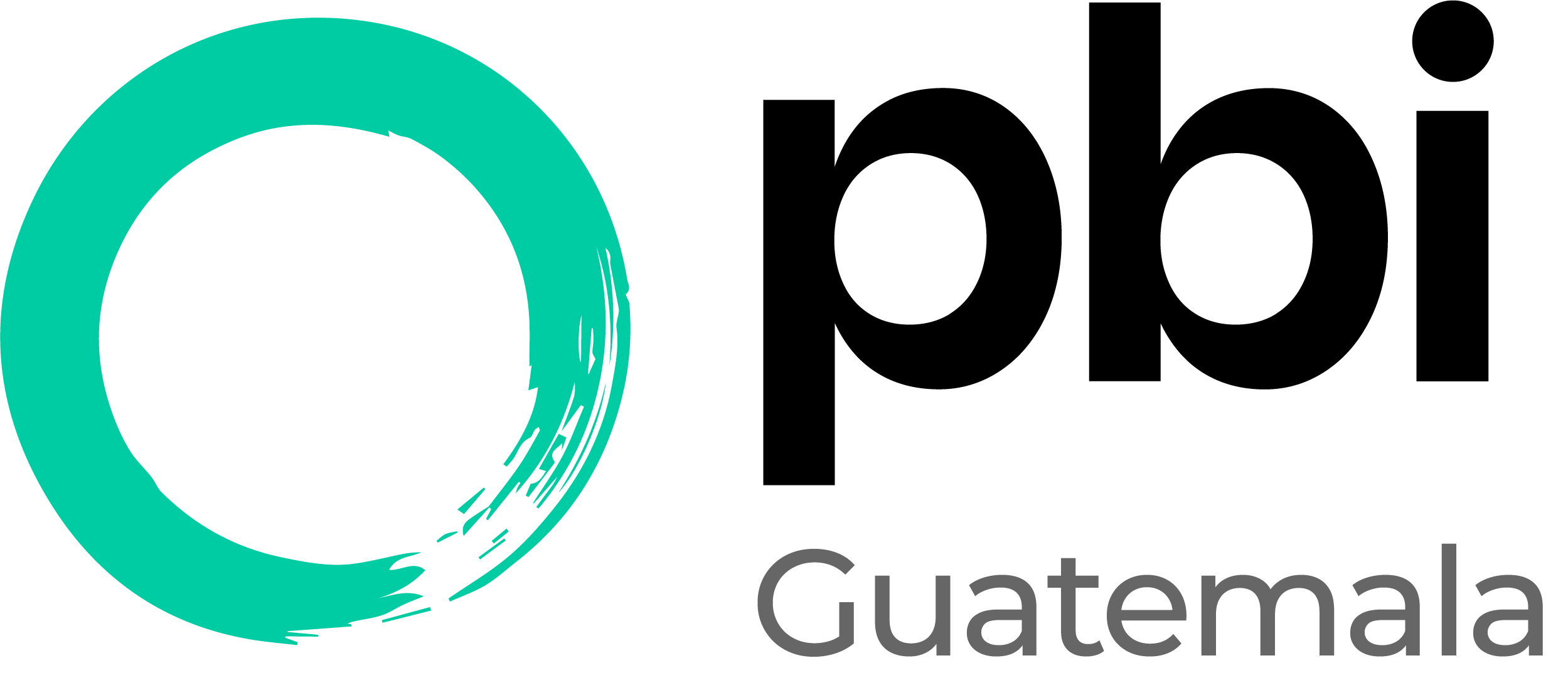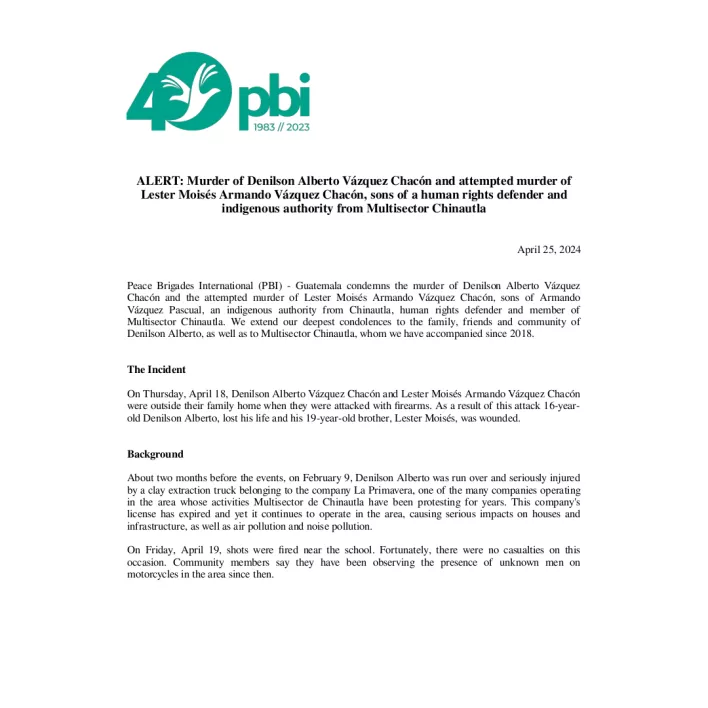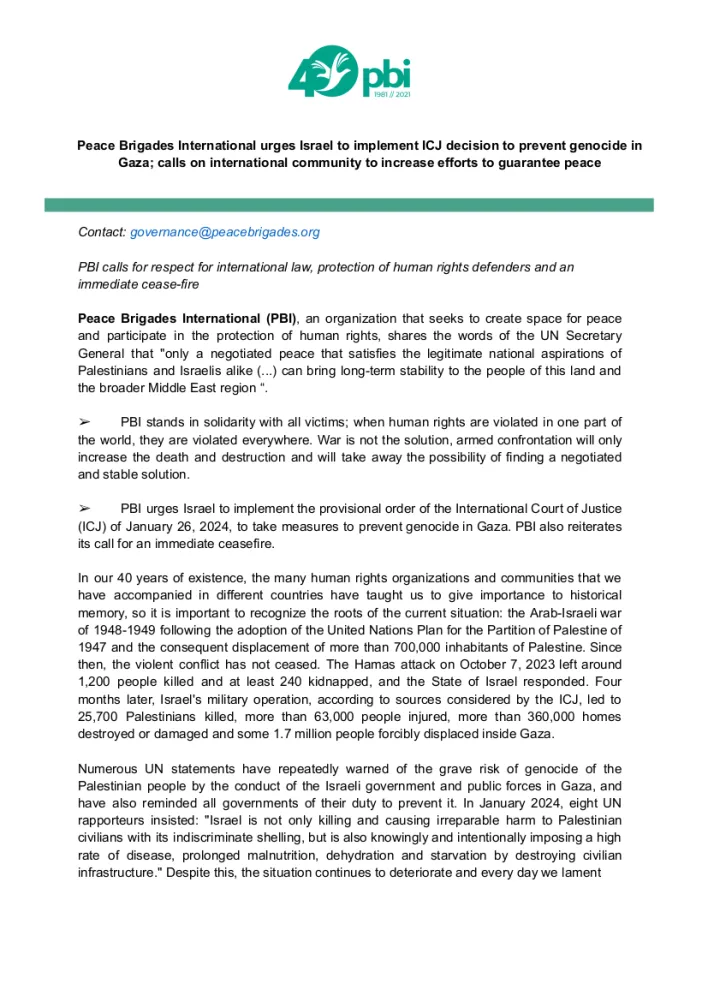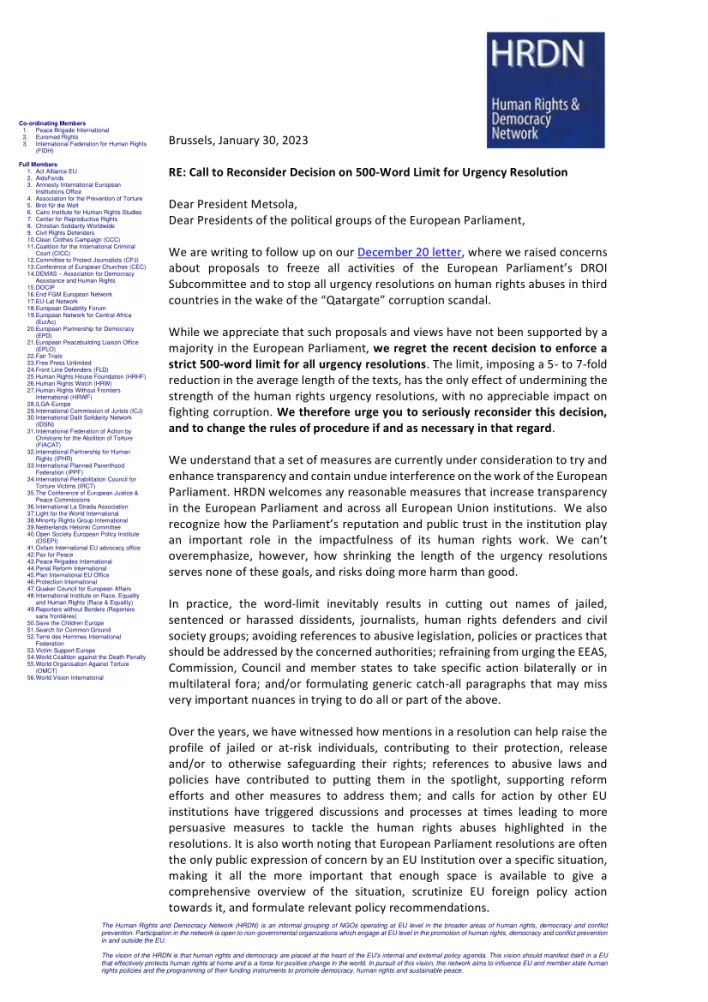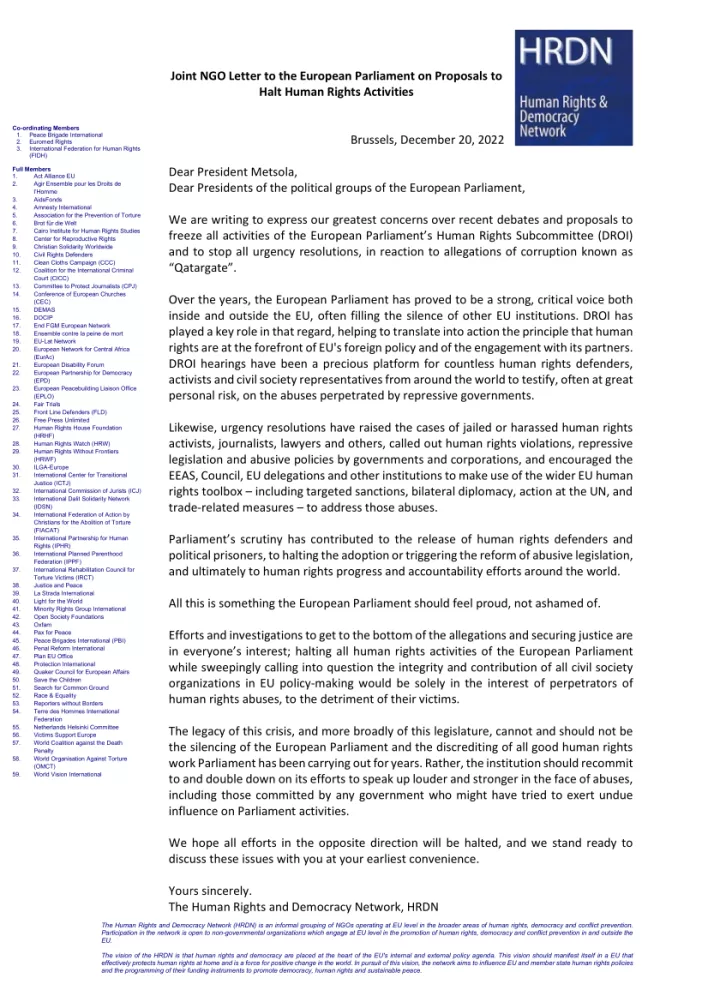Annual Report 2024 by PBI Guatemala
We present our Annual Report 2024, which summarizes our activities over the past year. We draw special attention to our accompaniment of campesino and indigenous organizations in Alta Verapaz, made up of communities that live under constant threat of eviction, as well as the Maya Ch’orti’ Indigenous Council of Olopa that defends their rights, and those of the territory they inhabit, against mining activities that have never been consulted.
